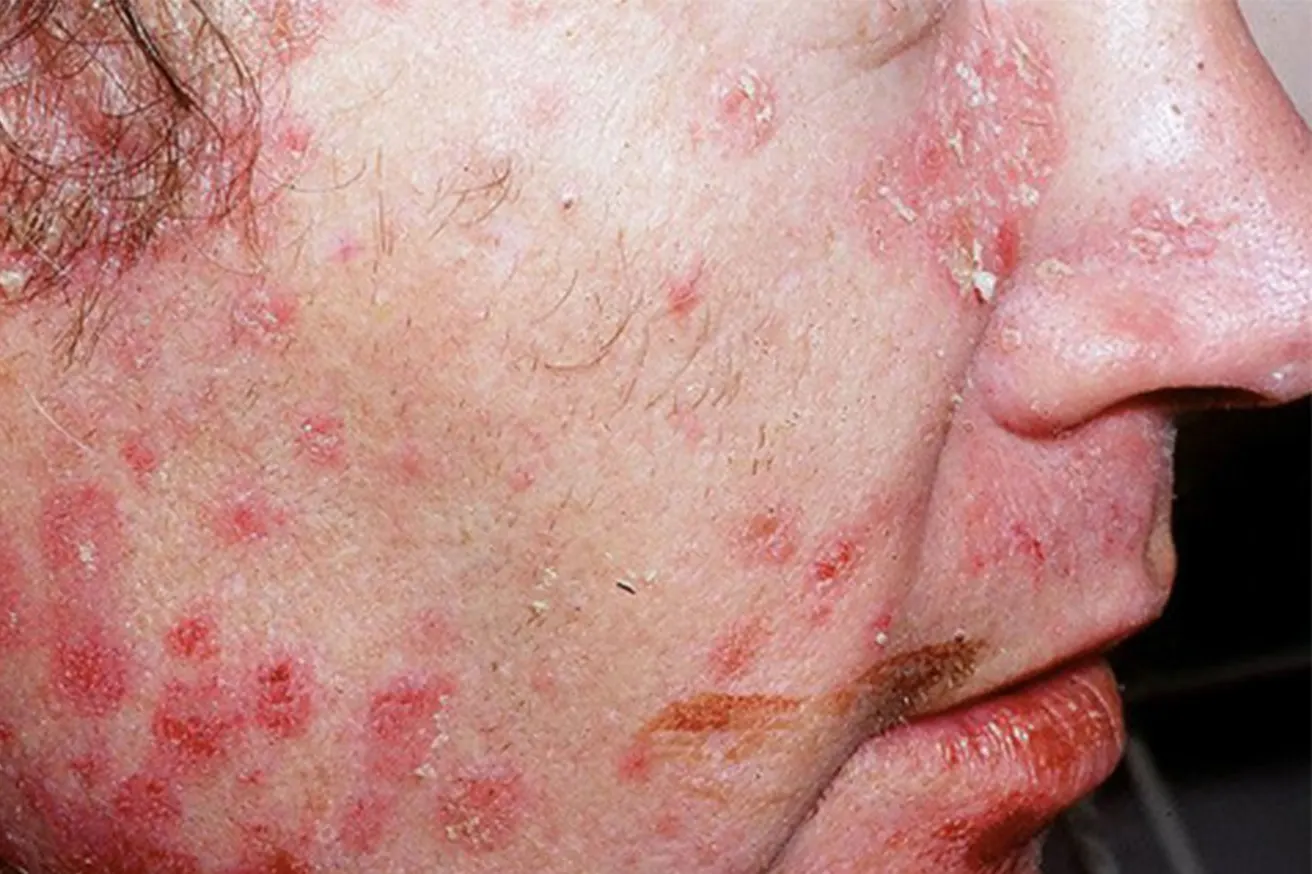What are the symptoms of psoriasis on the face?
Psoriasis on the face can present with various symptoms, which can vary in severity. Here are common signs to look out for:
- Red Patches: Raised, red, and inflamed patches of skin are a hallmark of psoriasis. On the face, these can appear on the cheeks, forehead, around the eyes, or on the nose.
- Scaling: The affected areas often have dry, flaky, and silvery scales. These scales can sometimes be quite thick.
- Itching and Burning: Psoriasis on the face can cause itching, burning, or tenderness, which can be uncomfortable.
- Cracking: In more severe cases, the skin may crack and bleed.
- Dryness: The facial skin can become excessively dry, leading to irritation and discomfort.
- Swelling: Mild swelling or puffiness might occur in the affected areas.
Psoriasis on the face requires careful management to avoid irritation and potential side effects from treatments due to the sensitivity of facial skin.
What is the treatment for psoriasis on the face?
Treating psoriasis on the face involves approaches that balance effectiveness with minimizing irritation due to the sensitivity of facial skin. The treatment options include:
- Topical Treatments: Mild topical corticosteroids are often used to reduce inflammation and itching. Non-steroidal options, such as topical calcineurin inhibitors (e.g., tacrolimus or pimecrolimus), can be effective and less irritating for facial psoriasis.
- Moisturizers: Regular use of emollients and moisturizers helps maintain skin hydration, reduce dryness, and alleviate discomfort.
- Phototherapy: Ultraviolet (UV) light therapy can be used for facial psoriasis, but it must be administered carefully to avoid side effects and further skin damage.
- Systemic Medications: In more severe cases, oral or injected systemic medications like methotrexate, cyclosporine, or biologics may be prescribed. These are typically used when topical treatments are not effective.
- Avoiding Triggers: Identifying and avoiding potential triggers, such as stress, certain skincare products, or irritants, can help manage flare-ups.
- Gentle Skincare: Using mild, non-irritating facial cleansers and avoiding harsh scrubs or exfoliants is important for managing facial psoriasis.
It’s crucial to work with a dermatologist to tailor the treatment to your specific needs and to ensure that the chosen therapies are appropriate for the sensitive facial skin.

Leave a Reply
You must be logged in to post a comment.